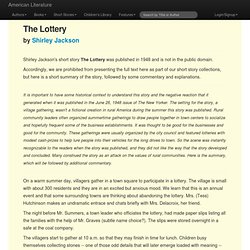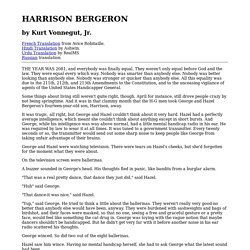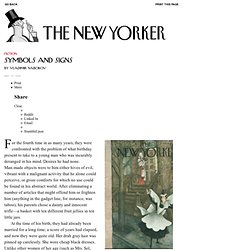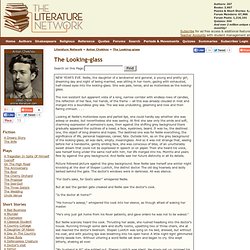

Americanliterature. By Shirley Jackson Shirley Jackson's short story The Lottery was published in 1948 and is not in the public domain.

Accordingly, we are prohibited from presenting the full text here as part of our short story collections, but here is a short summary of the story, followed by some commentary and explanations. It is important to have some historical context to understand this story and the negative reaction that it generated when it was published in the June 26, 1948 issue of The New Yorker. The setting for the story, a village gathering, wasn't a fictional creation in rural America during the summer this story was published. Rural community leaders often organized summertime gatherings to draw people together in town centers to socialize and hopefully frequent some of the business establishments. On a warm summer day, villagers gather in a town square to participate in a lottery. The night before Mr. The villagers start to gather at 10 a.m. so that they may finish in time for lunch. Mr. Harrison Bergeron. French Translation from Avice Robitaille.

Hindi Translation by Ashwin.Urdu Translation by RealMSRussian translation THE YEAR WAS 2081, and everybody was finally equal. They weren't only equal before God and the law. They were equal every which way. Nobody was smarter than anybody else. Nobody was better looking than anybody else. Three Questions by Leo Tolstoy.
Fiction: Symbols and Signs. For the fourth time in as many years, they were confronted with the problem of what birthday present to take to a young man who was incurably deranged in his mind.

Desires he had none. Man-made objects were to him either hives of evil, vibrant with a malignant activity that he alone could perceive, or gross comforts for which no use could be found in his abstract world. After eliminating a number of articles that might offend him or frighten him (anything in the gadget line, for instance, was taboo), his parents chose a dainty and innocent trifle—a basket with ten different fruit jellies in ten little jars. At the time of his birth, they had already been married for a long time; a score of years had elapsed, and now they were quite old. Her drab gray hair was pinned up carelessly. That Friday, their son’s birthday, everything went wrong.
Outside the building, she waited for her husband to open his umbrella and then took his arm. “I can’t sleep!” “Why can’t you sleep?” The Looking-glass by Anton Chekhov. NEW YEAR'S EVE.

Nellie, the daughter of a landowner and general, a young and pretty girl, dreaming day and night of being married, was sitting in her room, gazing with exhausted, half-closed eyes into the looking-glass. She was pale, tense, and as motionless as the looking-glass. The non-existent but apparent vista of a long, narrow corridor with endless rows of candles, the reflection of her face, her hands, of the frame -- all this was already clouded in mist and merged into a boundless grey sea. The sea was undulating, gleaming and now and then flaring crimson. . . . Looking at Nellie's motionless eyes and parted lips, one could hardly say whether she was asleep or awake, but nevertheless she was seeing. Picture followed picture against the grey background. "For God's sake, for God's sake! " But at last the garden gate creaked and Nellie saw the doctor's cook.
"Is the doctor at home? " "His honour's asleep," whispered the cook into her sleeve, as though afraid of waking her master. "Eh? "